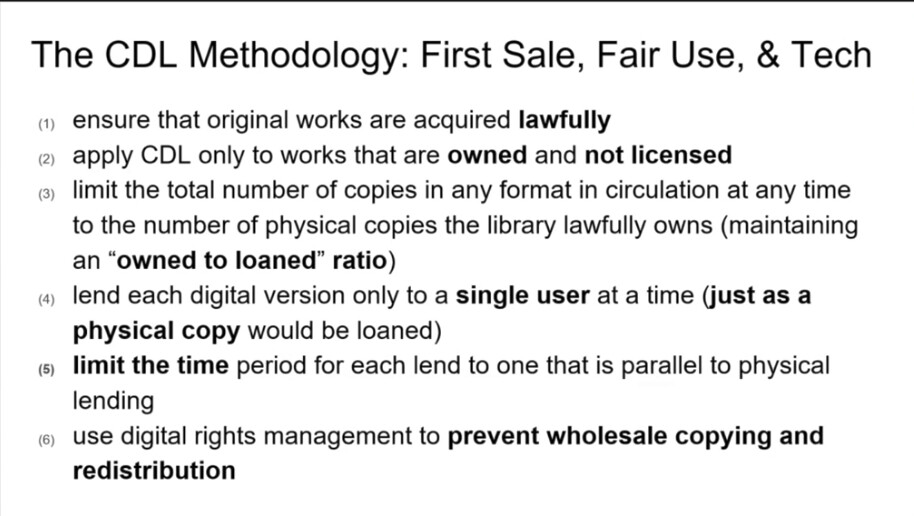This topic is for discussion of "Controlled digital lending and new models of sharing." To go back to this session in Sched, click here.
Fascinating talk! Perhaps the NISO community could assist here in deriving a framework for a more “library friendly” licensing model. Publishers should see libraries as a trusted partner and offer licensing solutions that reflect that trust.
Great session-thinking about broader landscape. During my career, I recognized the powerlessness of a single Electronic Resources Librarian to negotiate industry change, so follow CDI model as hopeful breakthrough. Today’s publisher presentation leans heavily on market impact, as other issues have been refuted by VIVA successfully licensing ebook lending, and uses industry accepted technology practices starting back in 2016 – Whole Ebook Lending - VIVA - VIVA, Virginia's Academic Library Consortium at VIVA It gives me pause, as a librarian, to wonder about impact to our broader society? In era where library lending is eroding due to modern formats, what else is happening in society as a whole? Given rise to – DEI in academia alone- points to scarcity of resources as an issue of discrimination (internet access, lack of wealth to outright purchase ebook, limits research to only books in library’s collection); explosion of debt for new generations attempting to seek college degrees; a substantial rise in US conspiracy theory followers, etc. As a hypothesis, could societal ills stem from modern day book access available to only the economically wealthy? Could the purported detrimental economic impact to copyright holders be over-stated by authors, given market reward is intended for the author/creator, but most money goes to third-party aggregators? I’m unsuccessful in locating quote by Kevin Smith, University of Kansas, … public good rights can slowly diminish without well-resourced lobbyists. Given wealth inequality in US, current events might be a potential cause/effect associated with decreased access to books?
As part of his talk, Kyle mentioned the need for a parallel policy for loan periods between the physical and the digital:

[This is at the 14 minute, 6 second mark in the recording playback.]
I think this is part of risk reduction—to show that the digital item is treated exactly like the physical item—but has there been a discussion about how important it is to maintain this parallel nature? In the academic space, we would consider putting a recall on a checked out item to reduce its loan period. Could a CDL of a physical item be considered the same way?
Kyle mentioned how HathiTrust and Internet Archive offered electronic editions of the physical books owned by libraries during COVID. When this happened there was not clarity on what “e” items libraries owned and how to access the content. As these programs remain from a knowledge base vendor perspective I would like to see recommendations on how these temporary “e” items are shared with knowledge base vendors. Using KBART automation would be one solution but this would be something that could be explored as the new sharing models are developed.